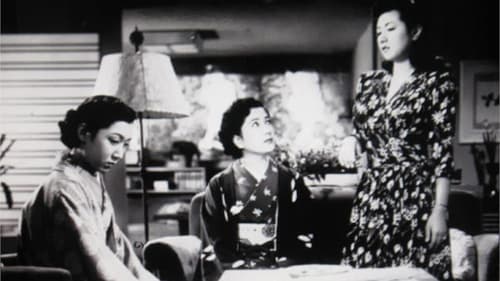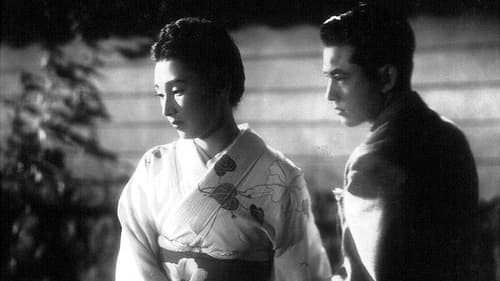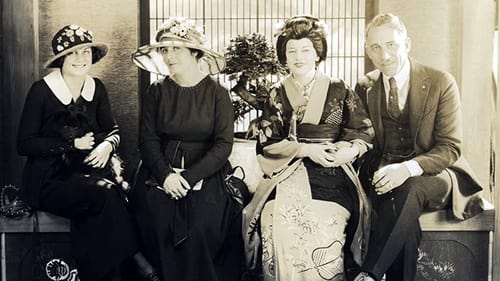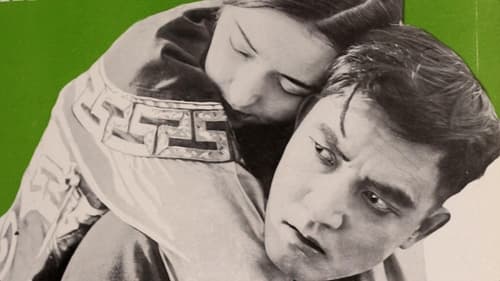Yutaka Abe
출생 : 1895-02-02, Miyagi Prefecture, Japan
사망 : 1977-02-03

Director

Director
An action masterpiece depicting the brotherhood of a younger brother (a student yakuza who breaks the gang rules and the law), and an older brother who prays for his brother's happiness while becoming a gangster to the old yakuza.

Director

Director
Japanese drama film.

Director
A narrative depicting the appearance of soldiers scattered in Rabaul during the Pacific War. The original work of Yoshinori Matsuura was dramatized by Toyama Tetsu of “Smuggling of the Body”, also directed by Yutaka Abe, and Shigeyoshi Mine of “Densuke's Propaganda” was in charge of the shooting. The main performers are Michitaro Mizushima of “Smuggling of the Body”, Ryoji Hayama of “The Sorrowful Garden”, Shoji Yasui of “The People of Okino”, Shiro Osaka of “Lonely Man”, “Tetsuji Kawakami Story 16” In addition to Hiroshi Nihonyanagi, Shinsuke Maki, Isamu Kosugi of the "Hunger Soul", Ko Mishima, Satoshi Nishimura, Saburo Hiromatsu, Hiroshi Kondo and others.

Director
A true semi-documentary drama depicting a record of a sheriff's challenge to the vivid evil of a sailor who embarked on a single underworld to uncover the crime of an inhumane international prostitution organization called "Japanese women's smuggling."

Director

Director

Director
Adaptation of the novel by Bunroku Shishi.

Director
The film is about the Yamato's suicide mission to Okinawa in March 1945 to defend the homeland threatened by U.S. bombers. Adapted from Mitsuru Yoshida's 1952 book "Requiem for the Battleship Yamato".

Director
Mr. Baku, a sandwich man, was familiar to his neighbors because he was a natural friend of Ryotaro Yanaka. Yoshie, the sign girl of the coffee shop, is the lover of Douta Kuraishi, the manager of Cabaret Orion.

Director

Director
Japanese drama film.

Executive Producer

Director

Director
A platonic love story, the protagonist continues to love the woman he fell in love with when he was a boy for the rest of his life.

Director
This film was made by the Japanese occupation authorities in the Philippines as a propaganda film to show the Philippine people the "benefits" of the Japanese invasion and takeover of their country.

Director

Producer
The film was produced during Second Sino-Japanese War, before the Pearl Harbor Attack in 1941. The film mainly concerns the training of newly-recruited pilots and their daily life, then their subsequent fighting experiences in China. Army supported the production, providing all the authentic airplanes, training and actual actions. They even provided the older biplanes disguised as Chinese fighter planes. Obinata plays the trainer-turned-combat-leader, who is passionate and cool at the same time. All his boys love him, of course. The film is not as intense, full of sugar-coated camaraderie, until young pilots are killed in action one by one. Last twenty minutes are fairly grim, as the message of self-sacrifice is heard loud and clear.

Director
The film was produced during Second Sino-Japanese War, before the Pearl Harbor Attack in 1941. The film mainly concerns the training of newly-recruited pilots and their daily life, then their subsequent fighting experiences in China. Army supported the production, providing all the authentic airplanes, training and actual actions. They even provided the older biplanes disguised as Chinese fighter planes. Obinata plays the trainer-turned-combat-leader, who is passionate and cool at the same time. All his boys love him, of course. The film is not as intense, full of sugar-coated camaraderie, until young pilots are killed in action one by one. Last twenty minutes are fairly grim, as the message of self-sacrifice is heard loud and clear.

Director
Venice Film Festival 1939

Director

Director
Directed by Yutaka Abe.

Director
A twice-remade ironic comedy about a writer's encounter with a female thief.

Director
Directed by Yutaka Abe (as Jack Abe).

The film is perhaps the only remaining example of silent era cinema from a Chinese-American production company, and was co-written, co-directed (with Francis J. Grandon) and produced by James B. Leong, who changed his name from Leong But-jung after emigrating from Shanghai in 1913. Of the seven reels that originally comprised 'Lotus Blossom,' only one (the fifth, running for 12 minutes at 20fps) is known to survive. This remaining reel of film is now available on Disc 2 of the DVD Collection "More Treasures from the American Film Archives," and was preserved by the UCLA Film and Television Archive.

The Worm
A white child is adopted and raised by a Chinese citizen and brought to San Francisco, where no one surmises that she is actually not Chinese.

Nogo
After Ned Hamilton is rejected by his girlfriend, he travels to Japan where he hears an old legend about the Willow Tree Princess, who kills herself so that her lover will go off to battle. When he makes a purchase from Tomotada, an image maker, he meets his pretty daughter O-Riu, and they recreate the events of the legend.

Lucero
An opium smuggler is marked for murder in this story of the Chinese Mafia.

Yano
Yano is a small delivery boy for his uncle, who keeps a curio shop in Chinatown. His loves are Tama, his sweetheart, and Bengi, his dog. Bengi is seized by dog catchers, but is rescued by Letty Stanford, for which Yano promises his fealty. Later Letty is kidnapped by Germans because of her war activities, and it is Yano who goes to her rescue and gets her free in spite of his diminutive size. The Little Japanese has paid his debt.

Tori's valet
A venal, spoiled stockbroker's wife impulsively embezzles $10,000 from the charity she chairs and desperately turns to a Burmese ivory trader to replace the stolen money.

A three-reel silent drama about an ambitious young man leaving behind his beloved in Japan to study abroad at the University of California, Berkeley.













